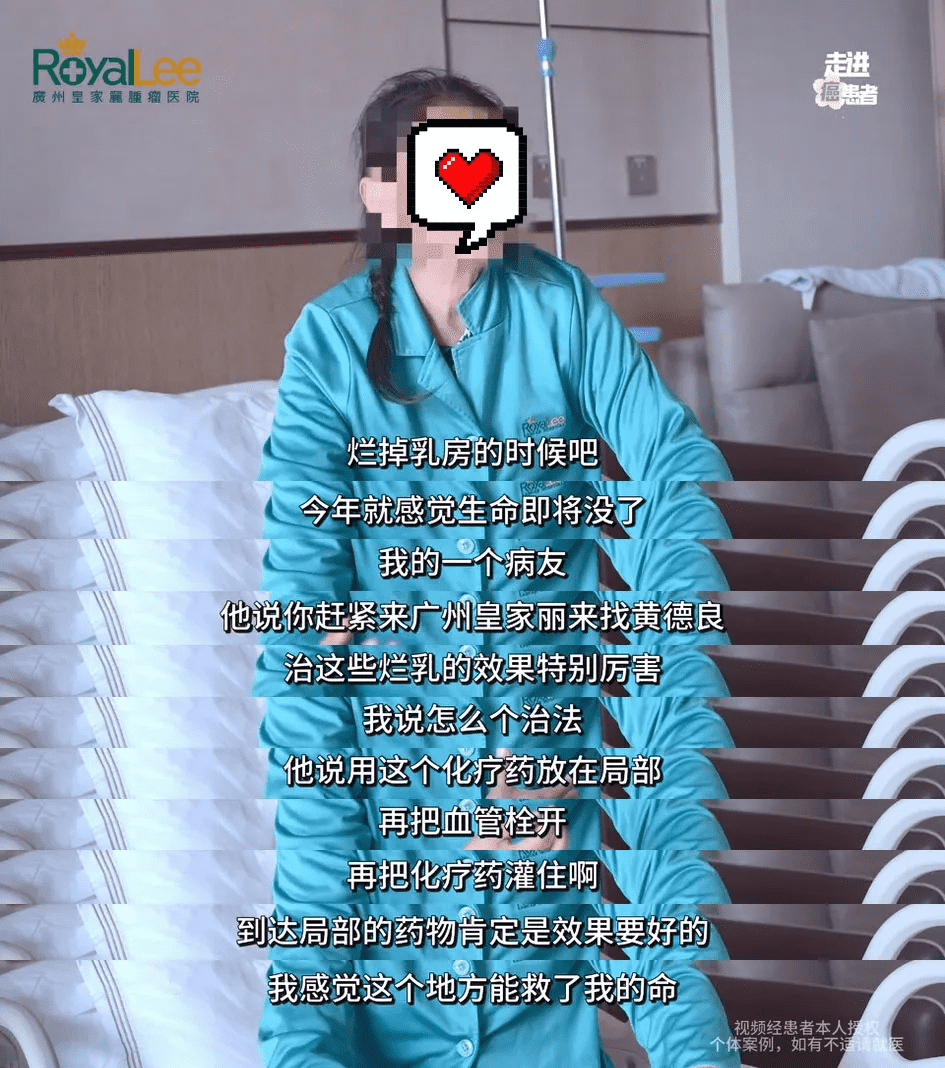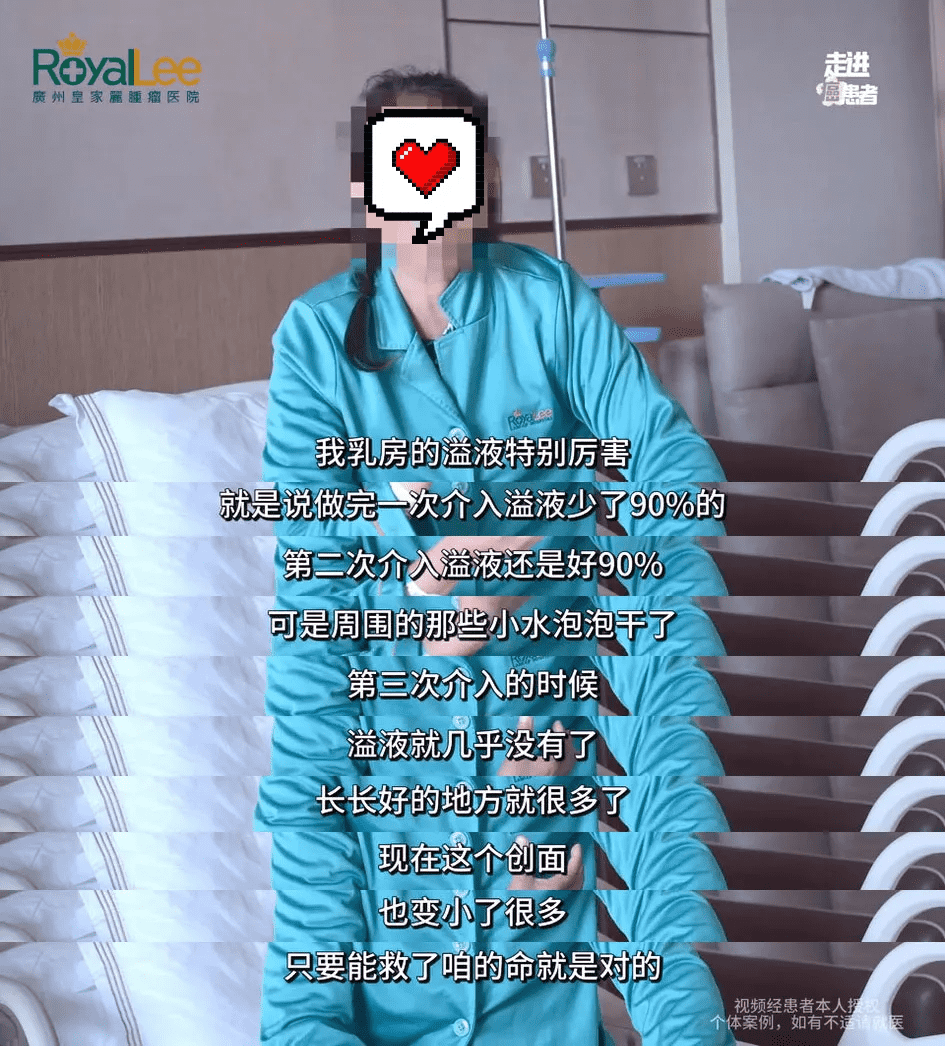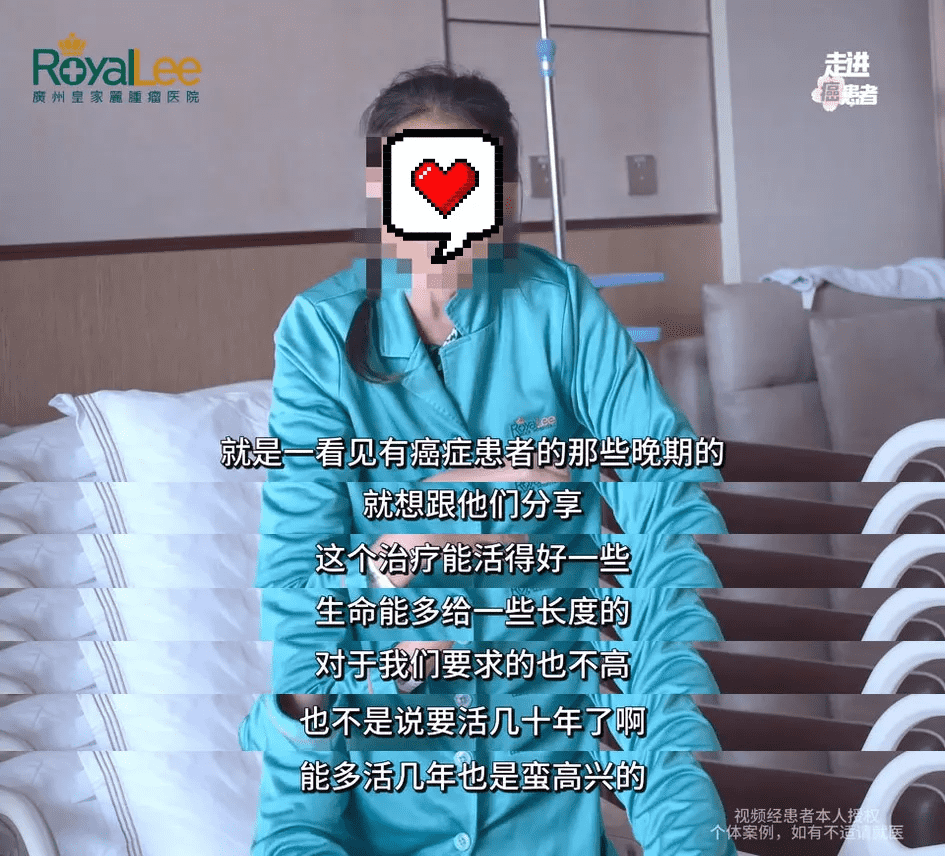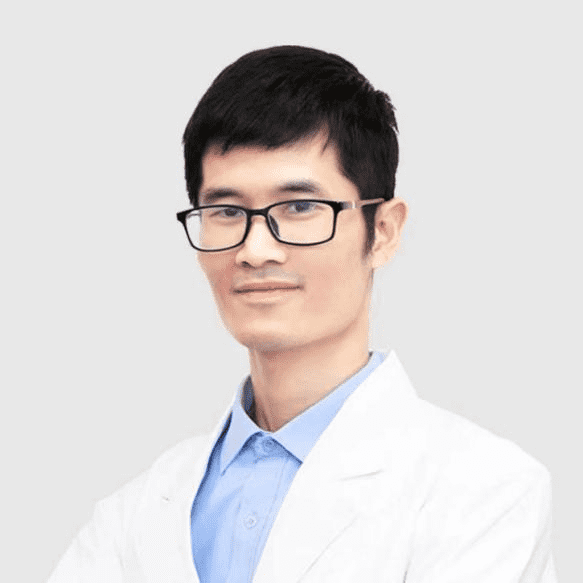Regular patient satisfaction surveys reveal that most patients highly commend our efficient and accurate diagnostic services, noting the demeanor of our staff, which eased their anxiety and boosted confidence in subsequent treatments.
When I first entered the ward, Sister Ping (pseudonym) was half lying on the bed, and a patient from another room was sitting on the bay window, chatting with each other.
In Guangzhou in July, the afternoon sun was blazing, the room felt a bit hot, and the watermelon slices on the table seemed to be evaporating. The two sisters, draped in silk shawls, were still recovering and frail, so the temperature was probably just right for them.
Sister Ping sat up. She was thin, with a chest wound, and she was unconsciously hunched, yet she exuded a fierce strength. We mentioned that Director Huang Deliang thought her surgery was good and wanted to hear about her current situation. Sister Ping's eyes sparkled, and a smile appeared on her face.
"I was diagnosed with the late stage four years ago and there's no cure..."
#1 “It feels like my life is just flowing away…”
In May 2020, Ping received the results of a CT scan, which showed left breast cancer with metastasis to the left axillary lymph nodes. Doctors assessed that there was no indication for surgery and that chemotherapy was the only option.
From June to August of the following year, Sister Ping underwent 23 cycles of chemotherapy. Her life was shattered by each cycle, and along with time, her energy and strength vanished. Sister Ping simply said, "By the end, I couldn't even move a stool."
During a follow-up examination at the end of August 2021, "the left breast cancer has not changed after treatment, and the left axillary lymph node metastasis has not changed compared to before..." The CT scan showed several "no changes" and there was no sign of improvement in the condition. Her energy and spirit were exhausted, so Sister Ping completely gave up chemotherapy.
In the next two years, she turned to traditional Chinese medicine for treatment, hoping that the conditioning could help her physical condition recover slightly.
Until the beginning of this year, the disease progressed again, and fluid began to flow out of my left breast. "I lay there, and the fluid kept flowing out. It felt like my life was flowing out of me."

#2 "I can already see the small wounds scabbing over."
Unable to stop the bleeding, Sister Ping concluded that her life was coming to an end. Until one day, a fellow patient called out, "Go to Guangzhou and see Dr. Huang Deliang. He can stop the bleeding. Or give me local chemotherapy to get the medicine to the wound!"
Sister Ping grasped the words of the stranger netizen.
"I was thinking, 'Intravenous chemotherapy delivers the drug throughout the body, but how much of it actually reaches the tumor? Professor Huang can deliver the drug to the tumor and treat it specifically, so the effect will definitely be better.'"

Was it the hope deep in her heart that was at work, or was it that she accidentally understood the principles and advantages of interventional treatment? In any case, as soon as Sister Ping thought about being able to stop the overflow without having to undergo systemic chemotherapy, she immediately went straight from Qingdao to Guangzhou.
In April of this year, Ms. Ping was admitted to the Minimally Invasive Interventional Department of the Royal Li Cancer Hospital. Dr. Huang Deliang and his team thoroughly assessed Ms. Ping's condition and medical history and developed a treatment plan.
✦ April 11
Director Huang Deliang performed "superselective arterial infusion chemotherapy" under the guidance of DSA
✦ May 8
"Superselective arterial infusion chemotherapy + embolization"
✦ June 7
Perform "superselective angiography and perfusion of the right internal thoracic artery; superselective angiography and perfusion of the right external thoracic artery; superselective angiography and perfusion of the left internal thoracic artery; superselective angiography and perfusion and embolization of the left external thoracic artery"
"After the first interventional surgery, the discharge was significantly reduced. After the second surgery, the small blisters dried up. The third time, I could see the wounds scabbing... Director Huang Deliang's medical skills are truly superb!" Sister Ping's face was filled with joy as she talked about her treatment. She unconsciously raised her right hand and gave a thumbs-up.

intra-arterial chemotherapy
Arterial perfusion chemotherapy refers to the use of a catheter under the guidance of DSA to find the tumor's feeding artery and inject high concentrations of chemotherapy drugs, anticancer drugs and embolic agents directly into the tumor tissue.
Advantages: High concentrations of drugs are directly applied locally to maximize anti-tumor effects, with minimal systemic toxicity and side effects, enabling most patients to receive treatment; blood vessels supplying the tumor are blocked, causing the tumor to lose blood supply and starve to death.
#3 "We were still arguing on the plane to Guangzhou!"
"Does your family object?"
When asked this question, the patient's sister who had been quiet all the time laughed out loud. She must have had a similar experience.
"My brother, my son, and my husband all disagreed and had a big argument! My son said I had been scammed, and we were still arguing on the plane to Guangzhou." After saying that, Sister Ping also laughed.
What the family members said as “stubborn and refusing to listen to advice” has now become “get good treatment and listen to the doctor’s advice”.

Sister Ping's smile is full of meaning. There is the relief of surviving a disaster because her disease is under control, and there is also a little pride after withstanding the pressure from her family and finally proving that her decision was correct. More importantly, it is the hope for life that has been rekindled because of the treatment effect.
"Having been ill before, I don't expect to live for another few decades, but the results I'm seeing now make me feel there's still hope for three or five years."
When I left the ward, the two sisters were still chatting.
There may not be any standard template for an ideal life.
On a midsummer afternoon, with the air conditioner turned on just right, eating sweet watermelon with friends, complaining about TV programs, and then talking about newly bought clothes, is a precious happiness.

 Expert introduction Huang Deliang
Expert introduction Huang Deliang

Technical Director and Chief Physician of Minimally Invasive Interventional Department, Guangzhou Royal Cancer Hospital
He is a member of the Chinese Anti-Cancer Association, a standing member of the Interventional Protection and Treatment Committee of the Guangdong Provincial Association of Preventive Medicine, a recipient of the Fu Jiamo Academician Award, the inventor of a national patent for a brain biopsy device, the founder of transbronchial water-cooled microwave ablation, and a member of the First International Medical Exchange Branch of the Chinese Anti-Cancer Association. During his more than 20 years of experience in minimally invasive tumor intervention, he has provided relief to numerous advanced cancer patients across the country, earning him awards such as Outstanding Individual in Medical Ethics and Outstanding Medical Staff.
Expertise: particle knife, photodynamic therapy, anhydrous alcohol injection into tumor chemical ablation, interventional regional perfusion chemotherapy, microwave ablation, interventional embolization tumor artery therapy, bronchoscopic tumor ablation.
Regular patient satisfaction surveys reveal that most patients highly commend our efficient and accurate diagnostic services, noting the demeanor of our staff, which eased their anxiety and boosted confidence in subsequent treatments.
Monthly patient satisfaction surveys show that patients highly rate our outpatient services, praising the smooth process, professionalism and patience of our staff, and expressing great satisfaction with the clinic environment.
Inpatient satisfaction surveys reveal patients are very pleased with our services, noting skilled and caring staff, as well as a comfortable environment that provides strong support for their recovery.